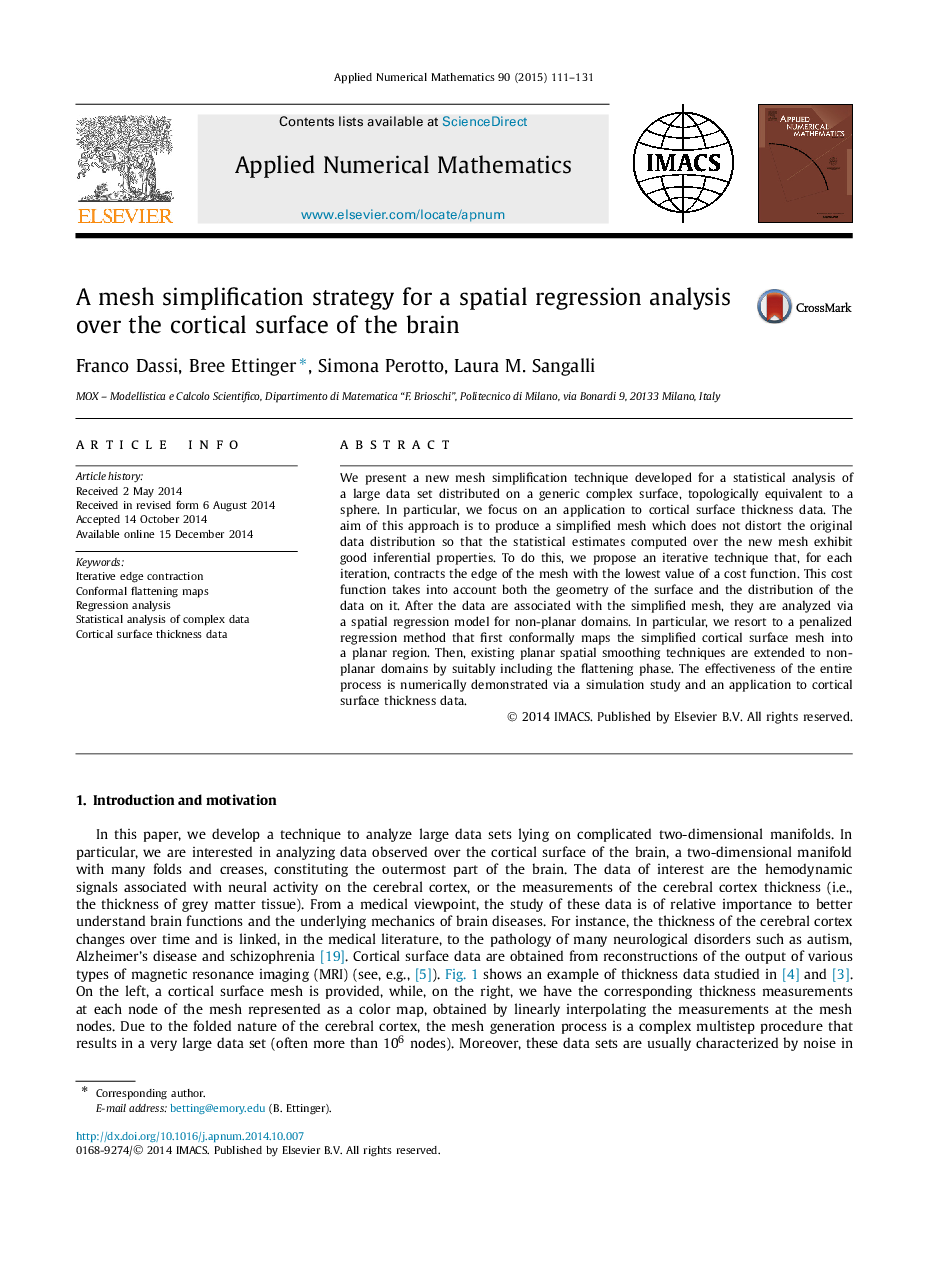| Article ID | Journal | Published Year | Pages | File Type |
|---|---|---|---|---|
| 4645000 | Applied Numerical Mathematics | 2015 | 21 Pages |
We present a new mesh simplification technique developed for a statistical analysis of a large data set distributed on a generic complex surface, topologically equivalent to a sphere. In particular, we focus on an application to cortical surface thickness data. The aim of this approach is to produce a simplified mesh which does not distort the original data distribution so that the statistical estimates computed over the new mesh exhibit good inferential properties. To do this, we propose an iterative technique that, for each iteration, contracts the edge of the mesh with the lowest value of a cost function. This cost function takes into account both the geometry of the surface and the distribution of the data on it. After the data are associated with the simplified mesh, they are analyzed via a spatial regression model for non-planar domains. In particular, we resort to a penalized regression method that first conformally maps the simplified cortical surface mesh into a planar region. Then, existing planar spatial smoothing techniques are extended to non-planar domains by suitably including the flattening phase. The effectiveness of the entire process is numerically demonstrated via a simulation study and an application to cortical surface thickness data.
